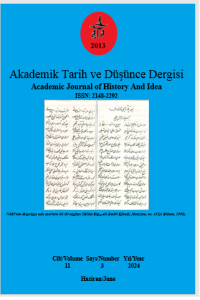Abstract
Linguistic Relativism, often encapsulated in the Sapir-Whorf hypothesis, posits that the language we speak influences our cognition, shaping our perception and interpretation of the world. This theory challenges the notion of a universal human experience, suggesting that linguistic structures and vocabularies mold our thoughts, beliefs, and behaviors. Contrasting this, linguistic universalism, championed by Noam Chomsky, argues for innate cognitive structures shared across all humans, transcending linguistic diversity. This article explores the origins, key proponents, and evidence supporting both perspectives, examining the interplay between language, thought, and culture. By analyzing studies on color perception, spatial orientation, and time conceptualization, alongside neurobiological and psycholinguistic research, the article highlights the ongoing debate and interdisciplinary scholarship in understanding the complex relationship between language, cognition, and culture.
Keywords:
Keywords
Linguistic Relativism Sapir-Whorf Hypothesis Linguistic Universalism Noam Chomsky Universal Grammar Language and Cognition
References
- Berlin, B. and Kay, P. (1991). Basic Color Terms: Their Universality and Evolution. University of California Press.
- Boas, F. (1966). Introduction to Handbook of American Indian Languages. University of Nebraska Press.
- Chomsky, N. (1957). Syntactic Structures. Mouton.
- Hagoort, P. and Indefrey, P. (2014). The Neurobiology of Language: Beyond single words. Annual Review of Neuroscience.
- Harley, T. (2013). The Psychology of language. From Data to Theory. Psychology Press.
- Lakoff, G., & Johnson, M. (1980). Metaphors We Live By. University of Chicago Press.
- Levinson, S. C. (2003). Space in Language and Cognition: Explorations in Cognitive Diversity. Cambridge University Press.
- Sapir, E. (1929). The status of linguistics as a science. Language, 207-214.
- Whorf, B. L. (1956). Language, Thought, and Reality: Selected Writings of Benjamin Lee Whorf. MIT Press
Abstract
Linguistic Relativism, often encapsulated in the Sapir-Whorf hypothesis, posits that the language we speak influences our cognition, shaping our perception and interpretation of the world. This theory challenges the notion of a universal human experience, suggesting that linguistic structures and vocabularies mold our thoughts, beliefs, and behaviors. Contrasting this, linguistic universalism, championed by Noam Chomsky, argues for innate cognitive structures shared across all humans, transcending linguistic diversity. This article explores the origins, key proponents, and evidence supporting both perspectives, examining the interplay between language, thought, and culture. By analyzing studies on color perception, spatial orientation, and time conceptualization, alongside neurobiological and psycholinguistic research, the article highlights the ongoing debate and interdisciplinary scholarship in understanding the complex relationship between language, cognition, and culture.
Keywords
Linguistic Relativism Sapir-Whorf Hypothesis Linguistic Universalism Noam Chomsky Universal Grammar Language and Cognition
References
- Berlin, B. and Kay, P. (1991). Basic Color Terms: Their Universality and Evolution. University of California Press.
- Boas, F. (1966). Introduction to Handbook of American Indian Languages. University of Nebraska Press.
- Chomsky, N. (1957). Syntactic Structures. Mouton.
- Hagoort, P. and Indefrey, P. (2014). The Neurobiology of Language: Beyond single words. Annual Review of Neuroscience.
- Harley, T. (2013). The Psychology of language. From Data to Theory. Psychology Press.
- Lakoff, G., & Johnson, M. (1980). Metaphors We Live By. University of Chicago Press.
- Levinson, S. C. (2003). Space in Language and Cognition: Explorations in Cognitive Diversity. Cambridge University Press.
- Sapir, E. (1929). The status of linguistics as a science. Language, 207-214.
- Whorf, B. L. (1956). Language, Thought, and Reality: Selected Writings of Benjamin Lee Whorf. MIT Press
Details
| Primary Language | Turkish |
|---|---|
| Subjects | Information Systems Education, Linguistics (Other) |
| Journal Section | Articles |
| Authors | |
| Early Pub Date | June 24, 2024 |
| Publication Date | November 6, 2024 |
| Submission Date | April 15, 2024 |
| Acceptance Date | May 25, 2024 |
| Published in Issue | Year 2024 Volume: 11 Issue: 3 |
По всем вопросам приема статей и выпуска очередных номеров обращаться в редакцию соответствующего журнала


